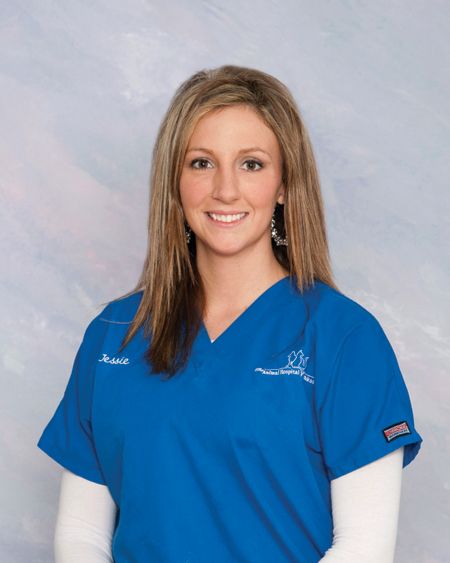Gallery: Nine finalists for Practice Manager of the Year
It's CVC Kansas City time, and we've got all the details on the finalists for the dvm360/VHMA Practice Manager of the Year contest.
The team at dvm360 and the Veterinary Hospital Managers Association announced today at CVC Kansas City the top finalists in the dvm360/VHMA Practice Manager of the Year competition.
Judges at dvm360 evaluated contestants on four criteria, drawn in part from the VHMA's own critical competencies for Certified Veterinary Practice Managers:
> Leadership and decision-making
> Team motivation and management
> Lifelong learning
> Adapting to change
"The caliber of these finalists is impressive," says Brian Conrad, CVPM, president of the Veterinary Hospital Managers Association. "These candidates deftly incorporate the skills and knowledge that are the hallmarks of effective practice management into their toolset and are using them to excel as leaders, collaborators, decision-makers, problem solvers, innovators and motivators. They are truly role models. Selecting only one award recipient from this group will be extremely difficult."
Flip through the following pages to see details on each finalist and read a little about what-in their words-shows their practice manager panache.
Next, expert judges from across the country will pick the 2016 Practice Manager of the Year. Find out who it is Dec. 8 at CVC San Diego or watch for the announcement here on dvm360.com.

Judi Bailey, CVPM
Hospital administrator
Loving Hands Animal Clinic in Alpharetta, Georgia
LEADERSHIP AND DECISION-MAKING
“Our building is 10,000 square feet, so hunting down paper records was incredibly inefficient. Although our software was built to run paperless, it was going to cost a lot of money to “upgrade” our current system and convert to paperless. I knew of another company that did everything our system did-and more-for a fraction of the cost. I developed a chartless protocol and software switch for the same time. These changes were met with questions and hostility from the team. Instead of allowing bickering to continue, I called a meeting so everyone could voice their concerns. The end result was a more efficient and cost-effective way to manage patients.”

Stephanie Bishop
Practice manager
Eastown Veterinary Clinic in Grand Rapids, Michigan
LIFELONG LEARNING
“I have weekly meetings with our middle management team and regularly share what I learn in management groups and classes with them. As these middle management positions are new and few of the staff in these positions have any management background or training, I've collaborated with them to create written protocols and policies and have put together binders for each of our clinic positions. We do drills on how to use corrective action plans, and I meet with each of them to discuss how to improve communication with subordinates and with each other. ”

Jessie Cox
Practice manager
Animal Hospital of Oshkosh in Oshkosh, Wisconsin
TEAM MOTIVATION AND MANAGEMENT
“Our hospital made a goal to increase heartworm compliance by 15 percent in March and April. The prize? The whole team would go to dinner and a movie. We also offered a weekend getaway for two to the “top seller.” We asked employees to track what they sold on a sheet. One month in, I noticed there wasn't a lot of talk about the contest-and no sheets. At the next team meeting, everyone counted the number of packs they'd recorded and got $1 for every pack written down. It was a fun way to celebrate and surprise those who'd continued to follow through. The end result: We met our goal and will be fine dining soon!”

Tricia Eagle
Practice manager and co-owner
Ashby Animal Clinic in Harrisonburg, Virginia
ADAPTING TO CHANGE
“In the midst of the 2007-09 recession, a doctor who'd been at our practice for 10 years left unexpectedly. At that time, we had three doctors, two of whom were part-time and not surgeons. That left us with only one full-time doctor, who was the only surgeon. A few months later, that doctor, the sole owner, developed an eye condition that left him unable to practice for almost three months. Under my leadership, our team buckled down and rode the wave together. The use of a relief doctor who used to be an associate helped with surgeries, while the other part-time doctors filled in to keep the practice afloat.”

Amy Jensen
Hospital manager
East Padden Animal Hospital in Vancouver, Washington
TEAM MOTIVATION AND MANAGEMENT
“Our clinic has grown from two to more than 25 staff members, and I've found it necessary to bring more staff into leadership positions. Previously, I would meet with each staff member monthly to check on performance, give feedback and set new goals. As we grew, I would meet with each department head monthly, and they would then meet with their individual team members. When the time came to assign team leads, I looked for staff with seniority, but also staff who showed true leadership qualities. I met with each of these new leaders to discuss new responsibilities and I assured them I would be there to mentor them. It's been an amazing success. ”

Stephanie Mieras, CVPM
Practice manager
Iron Mountain Animal Hospital in Iron Mountain, Michigan
ADAPTING TO CHANGE
“We lost three doctors in 2015, bringing us down to a four-doctor clinic. This was hard on our remaining doctors and staff, especially because we do our own on-call work. While we searched for replacements, we started technician appointments for vaccines, nail trims, lab work, etc. This change in scheduling freed up doctors for exams and sick patients and mitigated some of the scheduling stress. Even short-staffed, we were able to post a 13 percent increase in gross revenue in 2015. And because we leveraged our staff more efficiently, the average invoice amount increased 9 percent in that year.”

Jessica Murphy, CVPM
Practice manager and co-owner
Kryder Veterinary Clinic in Granger, Indiana
LIFELONG LEARNING
“I've been a part of the veterinary community for more than 20 years, and I came in with some skills already. I'm polite, able to talk in front of a group, honest and able to delegate. However, my “Type A” personality has meant I needed to learn to listen-probably a manager's most important skill. Working on my listening has helped me understand others' points of view better, rather than simply waiting for moments to rebut. Listening has helped me as a manager to inspire positive attitudes rather than negative ones. When I began listening more, my manager attitude changed from “I'll just do it” to “I know you can do it!”

Tracy Sheffield, BS, LVT, CVPM
Practice manager
Wimberley Veterinary Clinic in Wimberley, Texas
LEADERSHIP AND DECISION-MAKING
“We recently remodeled our practice. I acted as project manager. The first thing I did was interview each of our team members to see what they needed and what changes would be important to them to improve their workflow and efficiency. Then came the project budget. I analyzed our monthly cash flow and decided how much could be diverted to the remodel without hurting our ability to meet our current obligations. I then staged the project so the clinic could stay open during the waves of the renovation. The result has been a more modern, well-equipped clinic. We do more and see more patients each day.”

Stephanie West, DVM
Hospital administrator
Greater Buffalo Veterinary Emergency Clinic in Cheektowaga, New York
ADAPTING TO CHANGE
“I was convinced digital marketing was the future, but my shareholders still focused on the phonebook. Our online reviews were abysmal. Our old address from three years ago still showed up in web searches. We had no budget for non-Yellow-Pages marketing beyond a small fee we were paying to a company “handling” our online SEO that hadn't even bothered to fix the deficits I found on my own. So, I identified a low-cost firm to update our website, which brought revenue. With that money, I hired a local digital marketing group. In the first two months of using that firm, we saw an increase in case loads that matched the increase for the entire previous year."